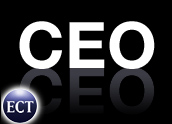
Microsoft has angered Chinese computer users with its latest antipiracy move.
On Tuesday, during its Global Anti-Piracy Day, Microsoft turned Windows Genuine Advantage loose on the Chinese people.
Other users worldwide are familiar with WGA, which famously labeled legitimate users as pirates and disabled some features of their operating systems.
‘Biggest Hacker in China’
One Chinese user complained that Microsoft had no right to hijack his computer.
Another, a lawyer, actually filed an official complaint against Microsoft for hacking, and called Microsoft the biggest hacker in China.
My initial reaction here was to dismiss the complaints of the Chinese people whose computers went on the fritz. They bought the pirated software, they ought to deal with the consequences. And really, those consequences aren’t all that bad. The desktop background turns black every hour. It can be changed back, but every hour it reverts to black. That’s it — everything else works just fine.
However, it’s worth noting that Microsoft made its inroads into China by tolerating, if not encouraging, piracy of its products.
Does This Look Familiar?
No less than Bill Gates himself said in a recent Fortune article that Microsoft competes better against Linux in China when there’s piracy than when there isn’t.
So, Microsoft actively looks the other way as people pirate its software. It builds its market share that way, and lets people get used to the idea of having Windows at a certain price.
Then, Microsoft decides one day that it just won’t do, and it shows up on people’s computers to harass them into buying its product.
This is a strategy Microsoft has employed before. It’s even got a name: Embrace, extend, extinguish.
It’s ironic that the same people who tolerate their own government monitoring and censoring their online speech object so fervently to much less-invasive tactics by a software company.
Then again, Microsoft is an American corporation. Chinese citizens, in their world view, probably see American corporations with more disdain and distrust than they do their own government. They rely on their government and they trust it to a much greater extent than U.S. citizens trust theirs.
And Americans have tolerated quite a bit of invasiveness from the U.S. government as well, right?
Some Suggestions
The bottom line here is that Microsoft can’t have it both ways.
It can either compete in the marketplace on a level playing field and accept that competitors also will be able to sell their products for whatever price they wish, or it can resort to dirty tricks, manipulative tactics and FUD campaigns.
It can fight piracy or it can encourage piracy, but it can’t do both.
So, Microsoft, here’s my advice to you: Compete fiercely but fairly. If you want people to shell out money to buy (license) your product, fine. Make a product that we want to buy and use, and set a reasonable price for it. When you make a new version, make it an improvement, not an update for the sake of an update.
Take advantage of your strengths: Compete with Apple on price and with Linux on quality.
Recognize that the operating system licensing business model is old and tired, and that commoditization is inevitable. Instead of trying to artificially inflate your revenues by charging outrageous prices that all but invite piracy, charge a reasonable price and go innovate a new business model that will make you lots of money.
Here are a couple of ideas: Make a mobile OS that people want to use. Write some apps for the iPhone and for Android and even BlackBerry, and sell them to people who want to use them.



















































Social Media
See all Social Media